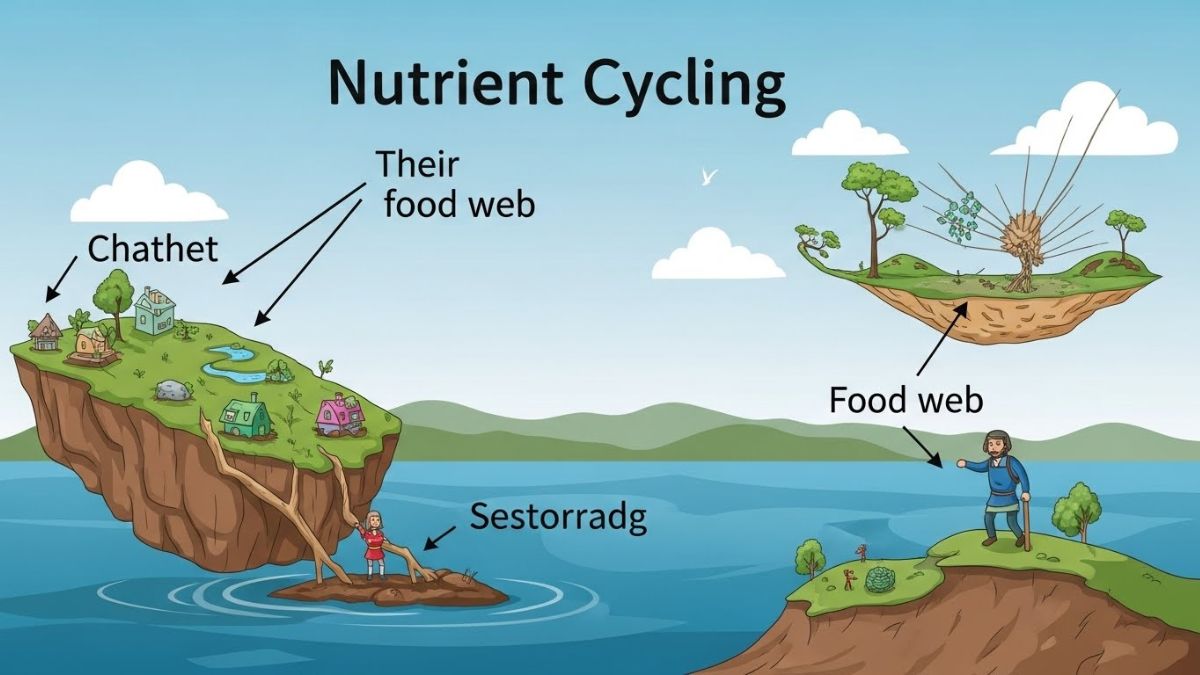There’s something inherently political about families. And I don’t mean that in the dinner-table-Thanksgiving-argument kind of way. I mean that in the structural, deeply embedded-in-policy sense that immigration law, particularly in the United States, has always treated family as both a guiding light and an administrative headache. I’ve followed policies from Brussels to Bogotá, and nothing compares to the bureaucratic tap dance required to reunite a family across borders. The laws are intricate. The emotions? Even more so. And somewhere in the thick of it, attorneys like those at Midwest Immigration Law in Kansas City translate love, loss, and longing into legal paperwork.
Let’s walk through this together—just like a cousin who shows up unannounced with a suitcase and dreams of citizenship.
When Family Is the Visa
Family-based immigration accounts for about 65–70% of all legal immigration to the United States. That’s not just a stat—it’s a staggering testament to how many people bet their futures on love, bloodlines, and sometimes the unbreakable bond between a child and a parent separated by oceans.
To put it into perspective, the U.S. annually issues about 480,000 family-based visas. That’s nearly half a million lives shifting because someone decided they couldn’t build a life without their sibling, their spouse, or their kid by their side. But that ideal runs into hard math when those visas are capped by category and country of origin. And trust me, if you’re from the Philippines or Mexico, you might want to teach your kids patience—because your visa number may not come up for decades.
As a Kansas City immigration attorney once told me over coffee near the Plaza, “Family immigration is a test of love and time zones.” No kidding.
The Inevitable Form I-130 (And All the Bureaucracy That Follows)

Every journey in family-based immigration starts with a form—Form I-130, to be exact. It sounds like a tax form, and in some ways, it feels like one. But this is where a U.S. citizen or lawful permanent resident officially asks Uncle Sam to let a family member into the country. In principle, it’s simple: you fill out the form, provide the documents, wait for processing, and voila—reunited.
Except… no. This is the U.S. immigration system, not Disney+.
Processing times can stretch for years depending on your filing category. Immediate relatives of U.S. citizens (spouses, unmarried children under 21, and parents) have it the easiest, as they’re not subject to numerical caps. But once you step into the preference categories—say, you’re a U.S. citizen filing for your married daughter or your brother from Honduras—you’re at the mercy of quotas that haven’t been updated in decades.
That’s when experienced hands come into play. A Kansas City immigration attorney familiar with this space can do more than push paper—they can manage timelines, anticipate requests for evidence, and navigate USCIS snafus that would make Kafka blush.
America’s Love-Hate Relationship with Chain Migration

Let’s talk about the elephant in the room—or should I say, the “chain migration” elephant that some politicians love to parade around. Despite the term’s harsh overtones, it simply means family-based immigration where one lawful immigrant sponsors another, and so on.
Critics argue that it dilutes merit-based immigration. Advocates counter, rightly, that family support structures increase immigrant success rates. Think about it: would you rather move to a new country alone, or with your aunt who already knows where the DMV is?
Globally, many countries are rethinking their family-based policies. Canada, for instance, favors spousal and dependent immigration but has tighter rules for siblings or parents. Australia leans heavily toward merit. Meanwhile, the U.S. straddles the middle—paying lip service to merit while quietly relying on family-based sponsorships to keep the wheels turning.
What’s unique about the Kansas City region is the diversity of applicants. Immigrants from East Africa, Latin America, Southeast Asia, and the Middle East converge here, often tangled in the same red tape. That’s where local legal knowledge really makes a difference. Midwest Immigration Law, run by the perceptive and tireless Yanky Perelmuter, has become a lighthouse for many families adrift in the system.
What About the Spouses?
Let’s get real for a second: love is already hard enough. Add immigration paperwork, cross-border video calls, and delayed consular interviews—and you’ve got a rom-com that no one wants to star in. Spousal immigration is one of the most emotionally charged, fraud-susceptible, and deeply bureaucratic parts of the process.
The U.S. treats immigrant spouses of citizens as “immediate relatives,” which sounds great—no wait times, right? But that doesn’t mean instant approval. Interviews can take months. If you’re applying from within the U.S., the adjustment of status process adds its own layer of complication. If you’re abroad, you’ll deal with National Visa Center delays and consulate closures—remember those during the pandemic?
In Kansas City, I’ve sat with couples who’ve waited more than a year just for an interview. One woman showed me a handwritten calendar she marked every Friday with “Maybe this week?” Her lawyer, a savvy Kansas City immigration attorney, knew the embassies’ quirks better than most embassy employees—and still couldn’t promise a timeline.
That’s the paradox of immigration law: it’s deeply personal, yet designed to be impersonal. That’s why having someone who can translate love into lawful presence is critical.
Children in Limbo
There’s a heartbreakingly specific category in immigration law called “aging out.” It refers to kids who, through no fault of their own, turn 21 while waiting for a visa and are suddenly considered adults, thus no longer eligible under certain categories.
Imagine being 20 years and 364 days old, and your number still hasn’t come up. The law, as it currently stands, would require you to restart the process under a different category. The Child Status Protection Act (CSPA) tries to buffer against this, but it’s not foolproof.
In situations like these, legal advice becomes not just helpful but essential. A Kansas City immigration attorney familiar with how USCIS calculates CSPA eligibility can make all the difference. Without intervention, families could be separated again—ironically, by the very system meant to reunite them.
That’s where the value of local experience comes in. Firms like Midwest Immigration Law, operating from the heart of Kansas, have built reputations not just on form-filing but on compassion, timing, and the ability to explain CSPA in plain English, which is a feat all its own.
A Global Game with Local Players
Let me zoom out for a moment. Family reunification remains a cornerstone of immigration policy around the world, though not always a stable one. In the UK, immigration laws have shifted dramatically post-Brexit, making it more challenging for EU spouses. Denmark famously added “integration requirements” to spousal visas, including language tests and age restrictions that have split thousands of couples. Saudi Arabia recently made it easier for expatriates to sponsor family members, but the policy still heavily favors high earners.
The United States, by comparison, is both generous and maddeningly slow. It is gracious because it allows extended families to reunite in a way many countries don’t. It is maddening because wait times and administrative backlogs stretch hope across years, sometimes decades.
This national slowness is felt locally in Kansas City, where the immigrant population has quietly but steadily grown. That’s why immigration lawyers in Kansas aren’t just legal professionals. They’re often translators, mediators, and sometimes, accidental therapists.
And if you’re wondering who to contact for legal immigration advice, the answer often lies just west of downtown, in a modest office where clients are treated like extended family.
When Bureaucracy Breaks the Heart
The U.S. immigration system—particularly the family-based side of it—isn’t exactly known for its speed or consistency. Some days, it moves with the grace of a sloth on sedatives. Other days, it changes its rules with little warning, leaving thousands of applicants stranded mid-process. The Trump administration, for instance, made sweeping changes that affected public charge rules, green card interviews, and processing timelines. Then the Biden administration reversed many of those shifts—but not all.
These policy swings can be devastating for immigrants relying on family-based petitions. I’ve spoken to couples in Kansas whose petitions were stalled simply because a new USCIS memo changed how affidavits of support were evaluated. In other cases, people were approved, only to cancel their interviews indefinitely due to COVID-era embassy closures. Throughout it all, their Kansas City immigration attorney was the only point of consistency in a shifting legal landscape.
The frustrating truth? Immigration law is deeply vulnerable to politics. And in the game of political football, it’s usually families who get kicked around the hardest.
Real People, Unreal Wait Times
Let’s put a human face on these delays. In 2005, a woman in Kansas City filed a petition for her brother in India. Twenty years later, he’s still waiting for a visa number. In 2017, a father from Nigeria petitioned for his children. Their interviews were scheduled for 2020, just before the pandemic shut everything down. Those kids still haven’t joined him.
Globally, countries with “first come, first served” systems (like Canada) often clear family reunification cases in under two years. The U.S., by contrast, continues to use per-country caps established in the early 1990s, despite radically different immigration flows today. Mexico, China, India, and the Philippines routinely hit those caps, meaning families from these countries often wait the longest.
This isn’t just inefficient—it’s cruel. And Kansas families, especially those relying on extended support networks, are feeling the brunt. I’ve seen legal filings with more updates than a Netflix Terms of Use document, and still, no resolution.
A Kafkaesque Love Story: Marrying into the Maze
Marrying a U.S. citizen is supposed to be the golden ticket of immigration. But even love stories require receipts. Immigration officials are trained to spot fraud, which means real couples are sometimes grilled like they’re auditioning for “Immigrant Newlyweds.”
I once interviewed a couple in Kansas City—a restaurant manager and a former exchange student—who had to prove they shared a toothbrush (not literally, but close). They were told to submit photographs, shared bills, joint bank accounts, social media posts, and yes, texts. A Kansas City immigration attorney helped them prep a thick binder that could double as a doorstop.
Even then, their interview was a high-stakes memory game. When did you first meet? Who proposed? What color is the couch in your living room? Imagine building a marriage on trust and then being told to prove it with screenshots.
This is where attorneys like those at Midwest Immigration Law make a difference. They understand that even genuine couples can forget if the first date was on a Thursday or a Friday. They prepare clients both legally and emotionally for a process that doesn’t always feel like justice.
Stories That Should Be Headlines
Not all is doom and delay. Some stories stand out as reminders of what family-based immigration can achieve when done right. In Kansas, a man who fled civil unrest in Sudan was reunited with his wife and two children after six years. His case was expedited with the help of an immigration lawyer who filed under the Humanitarian Parole program—a rarely used but powerful tool.
In another case, a Pakistani grandmother was granted a green card just weeks before the window for her visa category was about to close. She now lives in Olathe, helping raise her grandkids while growing tomatoes and explaining cricket to confused neighbors.
These aren’t just warm fuzzies. These are testaments to the impact of localized expertise. A Kansas City immigration attorney familiar with niche filings, changing policies, and human timing—not just legal timing—can tip the scales.
It’s not about shortcuts. It’s about knowing the corners of the law where families can breathe again.
The Price Tag of Love (And Why It Shouldn’t Break the Bank)
Let’s talk about money. Immigration law in America isn’t free—and I don’t just mean emotionally. Application fees are high. Mistakes are costly. And not everyone can afford a boutique firm charging Silicon Valley rates.
That’s why firms like Midwest Immigration Law stand out. Known for offering transparent and fair pricing, they operate with a model accessible to middle-class families. This isn’t a discount operation—it’s a dedicated legal outfit that believes immigration should be affordable and fair. That philosophy is fundamental in Kansas City, where many immigrants are small business owners, teachers, construction workers, or caregivers.
Access to affordable immigration representation isn’t a luxury—it’s a necessity, especially when the law harshly penalizes missteps. One mistake on a form? You could lose years.
If you’re wondering who to contact for legal immigration advice, you’re not alone. Thousands of people search for that answer every day. The key is to find someone who sees you not just as a case file but as a family trying to hold itself together.
A System Held Together by Hope (and Attorneys)
Family-based immigration is often pitched as a straightforward path. In reality, it’s a marathon of paperwork, interviews, waiting rooms, and policy shifts. Yet, despite its messiness, it’s also one of the most human parts of our legal system. It’s driven by love, loyalty, and the primal need to be with the people who matter most.
Kansas City might not be the first place that comes to mind when you think of immigration reform, but here, in the heart of the country, families are quietly rewriting their own stories—one visa at a time. They’re doing it in community centers, churches, small businesses, and yes, in the offices of people like Yanky Perelmuter at Midwest Immigration Law.
If you’re lost in the maze, wondering whether your daughter can join you, or your spouse will ever see a sunrise in Kansas, know this: the right help is out there. And sometimes, it’s just across town, sipping a burnt cup of courthouse coffee, filing the right form, and giving you your family back.











